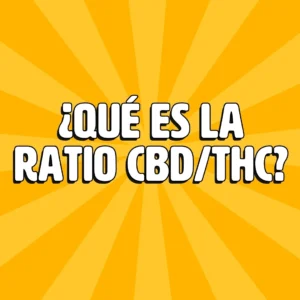The impact of chronic pain on people’s quality of life is significant. It can affect your ability to carry out daily activities, work, socialize, and enjoy life in general. In addition to physical suffering, chronic pain can have psychological effects, such as depression, anxiety, and irritability.
What is CBD and how does it affect chronic pain?
Cannabidiol (CBD) has been shown to be a highly effective analgesic that acts quickly to relieve pain when consumed sublingually, inhaled, or transdermally applied. Unlike conventional medications, both non-opioid painkillers and opioids, CBD has fewer side effects and not as severe as typical medications. In addition, it does not cause tolerance or dependence, and in most cases, can be safely combined with other medications and treatments for chronic pain.
Scientific research and clinical trials have widely projected the positive and effective effects of CBD in relieving pain and inflammation. CBD’s ability to reduce inflammation is due to its modulation of the immune system, which triggers the body’s inflammatory response. These symptoms are how the immune system responds to injury, infection, or tissue and/or nerve damage.
Properties of CBD
According to studies and research carried out on CBD, conclusions have been drawn regarding its properties:
- Analgesic: CBD has pain-relieving properties.
- Neuroprotective: CBD protects and preserves the health of nerve cells.
- Antiinflammatory: CBD reduces inflammation in the body.
- Immunomodulator: CBD regulates and balances the immune system.
- Opioid appetite reducer: CBD decreases the desire to use opioids.
- Anxiolytic and Antipsychotic: CBD has calming effects and helps reduce psychotic and anxiety symptoms.
- Anticonvulsant: CBD helps prevent and control seizures.
- Anti-nausea and antiemetic: CBD reduces nausea and vomiting.
- Antioxidant: CBD protects against oxidative damage in the body.
- Antitumor: CBD shows properties to fight and prevent tumor growth.
Why Can CBD Relieve Chronic Pain?
Cannabinoids, such as CBD, attach to, modulate, and interact with endocannabinoid system (ECS) receptors distributed throughout the body.
The endocannabinoid system is a complex intercellular system, still little understood, responsible for regulating essential physiological functions, such as memory, sleep, mood and energy balance. In addition, it plays a significant role in chronic pain management, pain response, and analgesia.
Brain receptors control various functions, including motor coordination, pain, emotions, and mood. On the other hand, receptors present in the immune system influence pain perception and inflammatory response.
Cannabidiol can become an ally for the treatment of chronic pain due to its analgesic and anti-inflammatory properties, providing a safe alternative. In addition, cannabinoids can work synergistically with opiates, opening the door to their complementary use in opioid treatments.
Tips for Using CBD in Chronic Pain
When employing CBD for chronic pain management, it is essential to keep in mind some tips that will help maximize its effectiveness and safety:
- Consult a healthcare professional before starting CBD use.
- Start with a low dose and adjust gradually.
- Follow the product instructions for best results.
- Be consistent and have patience to experience the full benefits.
- Keep track of your symptoms and adjust the dosage if necessary.
- Choose quality CBD products from trusted sources.
Be aware of possible side effects and consult a professional if necessary.
How to Use CBD for Chronic Pain
Route of administration
Skin use, which provides localized relief, since CBD is not absorbed into the bloodstream. It can be found in CBD-enriched creams, balms and ointments, which are valuable for soothing the affected area. This is the only regulated format in Spain.
Dose
In clinical trials, the determination of the optimal dose is based on a variety of factors. These include:
- Body constitution (each individual is unique and their endocannabinoid system is also unique).
- History of cannabinoid use and tolerance to CBD.
Weight, age and sex. - The level of discomfort experienced by the person.
- The format of the medication containing CBD.
However, this does not imply that it is impossible to establish the optimal dose. It simply means that there is no hard and fast rule that works for everyone. It is challenging to provide a definitive answer in terms of dosage, as many clinical trials are ongoing and most evaluate different ratios of CBD and THC combined.
It is advisable to start with a low dose of CBD and adjust according to the personal response. The effect of CBD can vary between individuals, so it is necessary to discover the optimal amount for each person, also considering the nature of the ailment or discomfort that is intended to be treated with CBD oil.
Scientific evidence
In 2019, a milestone in medical research began: the conduct of one of the first clinical trials with patients, focused exclusively on the use of CBD to treat chronic pain. Under the direction of the prestigious McLean Hospital and led by a leading researcher and professor at Harvard University, this revolutionary study proposed a novel therapeutic approach.
Bibliography
- Belén Palomo-Garo, et al. “Targeting the Cannabinoid System for Pain Relief: A Review.” Acta Pharmacologica Sinica, vol. 38, no. 6, 2017, pp. 825-841.
- Ethan B. Russo. “Cannabis and Cannabinoids in Pain Relief: A Review.” Cannabis and Cannabinoid Research, vol. 2, no. 1, 2017, pp. 96-104.
- Kevin Boehnke, et al. “Medical Cannabis Use Is Associated With Decreased Opiate Medication Use in a Retrospective Cross-Sectional Survey of Patients With Chronic Pain.” The Journal of Pain, vol. 17, no. 6, 2016, pp. 739-744.
- Kornelia Kamprath, Giovanni Marsicano et al. “Cannabinoid CB1 Receptor Mediates Fear Extinction via Habituation-Like Processes.” Journal of Neuroscience, doi: 10.1523/JNEUROSCI.0153-06.2006.
- Roger G. Pertwee. “The Diverse CB1 and CB2 Receptor Pharmacology of Three Plant Cannabinoids: Δ9-Tetrahydrocannabinol, Cannabidiol and Δ9-Tetrahydrocannabivarin.” British Journal of Pharmacology, vol. 153, no. 2, 2008, pp. 199-215.
- Hammell, D.C., et al. “Transdermal Cannabidiol Reduces Inflammation and Pain-Related Behaviours in a Rat Model of Arthritis.” European Journal of Pain, vol. 20, no. 6, 2016, pp. 936-948.
- Mark S. Wallace, et al. “Dose-Dependent Effects of Smoked Cannabis on Capsaicin-Induced Pain and Hyperalgesia in Healthy Volunteers.” Anesthesiology, vol. 107, no. 5, 2007, pp. 785-796.
SOUTHERN PHARMA SPAIN S.L will not assume any liability arising from the use by third parties of the content of the website and may exercise all civil or criminal actions that correspond to it in the event of infringement of these rights by the user. It is absolutely forbidden to use the website or any of its elements for illicit purposes. The benefits and properties of cbd that could be read on the website www.gorillagrillz.com are in no way attributed to the products sold on the website. CBD products are not medicines and should not replace treatments with them. What you can read on our website are not official medical claims but references to preclinical studies. If you have any questions, you can consult with a professional health personnel. We remind you that in Spain CBD products are for topical use. All products have THC<0.2% analyses in accordance with Royal Decree 1729/1999.
| Pablo Ruiz Professional copywriter. |












